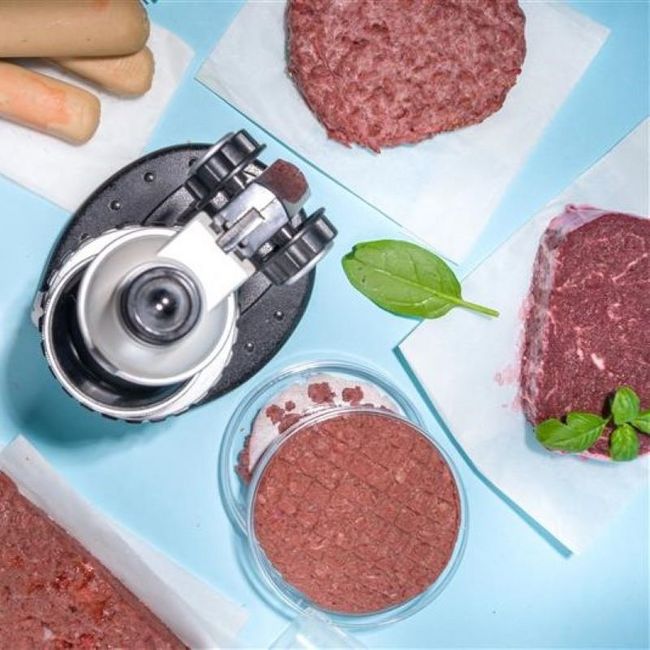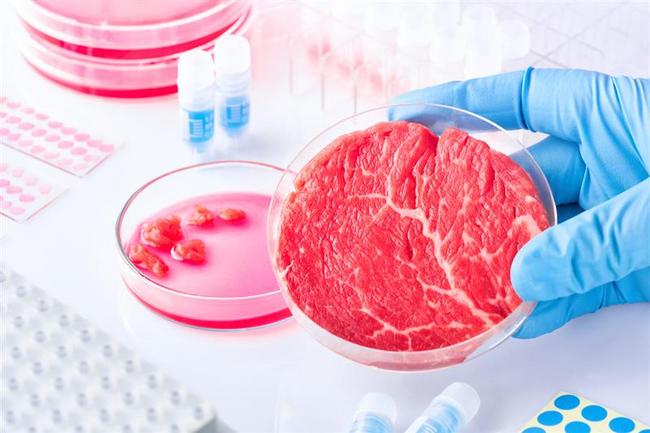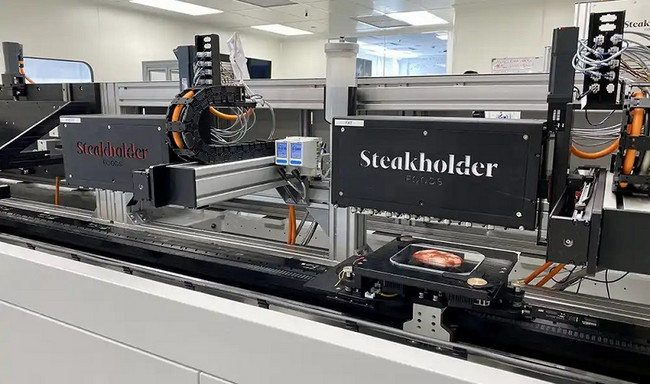✕



✕

Tag:Innovation Cell-based meat Steakholder food 2023-09-14 13:26

Steakholder Foods has filed a provisional patent application for its novel technology, an “Immortal Bovine Cell Line.” The development will enable mass production of ethically-cultured meat products and pave the way for mass commercialization, helping food innovators overcome scalability challenges and reduce the ecological impact of animal agriculture while improving nutritional options.
The patent application describes a method of enhancing the growth and longevity of bovine cells, which can be used to increase biomass production and immortalize them in a short duration.
The patent presents a technique that leverages stem cells and their inherent ability to self-duplicate and differentiate. Presenting immortal cell lines that can give rise to tissues like muscle and fat. This advances the scale, repeatability and growth – needed for commercialization of cell-based meat technologies.
“The potential of the cells to proliferate numerous times means that the technology has the potential to supply a huge amount of meat. This strategy can start with a biopsy of a tissue without slaughtering any animal,” a Steakholder Foods spokesperson, tells Food Ingredients First.
This means that in 100 generations of replications, a single cell in an immortal cell line could theoretically produce more than 3,250 trillion metric tons of meat.
According to Steakholder Foods, with around 350 million metric tons of meat consumed annually, immortal cell lines are paving the way to ensuring slaughter-free meat supply for the foreseeable future.
“This isn’t merely a technological milestone; it’s a paradigm shift in how we envision food production for the future.”
The company’s approach to cell lines goes two ways. The first includes developing cells that can stably multiply numerous times, called immortalized cells. The patent and techniques for this method are “fully developed and matured.”

The patent application describes a method of enhancing the growth and longevity of bovine cells.
The second approach uses culture cell-line types that have the natural capability to proliferate for longer durations, such as Embryonic Stem Cells (ESC) and Induced Pluripotent Stem Cells (iPSC).
Inherent self-replication
The new patent application enhances the growth capacity of bovine cells, leading them to immortalization while delivering increasing biomass production in a “relatively short” time.
The company says that this technology will overcome the challenges of scaling up while ensuring consistency.
“Once we use our technology to develop stable cells that can proliferate without losing their ability or slowing the time it takes them to proliferate, we get a stable and efficient growth process that also reflects in the production price and high-quality product,” the spokesperson notes.
“With immortal cell lines, Steakholder Foods aims to provide a stable, renewable source for generating different tissues to reduce the ecological impact of animal agriculture while improving nutritional options.”
By using the “inherent self-replication” and “functional differentiation abilities” of stem cells, the company presents immortal cell lines that can generate a broad array of tissues, such as muscle and fat.

Immortal cell lines are paving the way to ensuring slaughter-free meat supply. (Image Credits: Steakholder Foods).
Warming up to cell-based meat
The burgeoning cultured meat industry is going through a growth period with a surge of regulatory developments in recent months, as more companies are announcing breakthroughs and innovations in the field of cell-based meat production.
Notably, religious authorities have ruled that cell-based foods can be halal and kosher. According to Good Meat, a trio of “well-respected scholars in Saudi Arabia,” have concluded that cultivated meat can be halal if it meets some conditions.
Good Meat’s news comes at the heels of the Orthodox Union, the world’s largest kosher certification agency, announcing that the chicken cell line of Super Meat meets the highest level of kosher supervision: Mehadrin standards.
“Steakholder Foods is working with kosher and halal authorities to meet their standards,” the spokesperson reveals.
Recently, the UK and Switzerland saw the first cell-based applications in Europe. Moreover, in July, the Netherlands became the first European country to greenlight cultivated meat.
In March, Good Meat received the second US-cultivated meat authorization from the FDA.
Don't Go To A Brazilian Steakhouse Without Knowing How To Use The Table Cards
Goldfish Is Getting A New 'Grown-Up Name' But There's A Catch
The Best Type Of Relish For Your Homemade Tartar Sauce
The Days Of Broken McDonald's Ice Cream Machines Are Over
How A Bag Of Frozen Veggies Effortlessly Takes Pasta Night To A New Level
About Us Terms of Service Privacy Policy Contact Us
Hotline(+86)17301604571
 Enterprise WeChat
Enterprise WeChat
for Client Service
 EZBuy
EZBuy
WeChat APP
Sinoexpo Digital Platform
Shanghai Sinoexpo Informa Markets International Exhibition Co., Ltd. All rights reserved
沪ICP备05034851号-77
 沪公网安备31010402000543号
沪公网安备31010402000543号